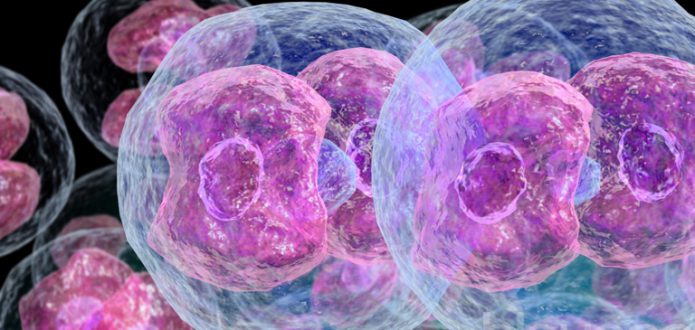Lymphoma
If you or your loved one is dealing with a diagnosis of lymphoma, our multidisciplinary team of hematologic cancer specialists at West Cancer Center & Research Institute is here to surround you with the latest treatments and technology to design a personalized treatment plan specific to your disease. Our goal is to also provide resources and information to better help you understand and manage your lymphoma.
What is Lymphoma?
Lymphoma is a cancer of the lymphatic system, which is part of the body’s germ-fighting network.
The lymphatic system includes the lymph nodes (lymph glands), spleen, thymus gland and bone marrow. Lymphoma can affect all those areas as well as other organs throughout the body.
Many types of lymphoma exist. The main subtypes are:
Hodgkin’s lymphoma (formerly called Hodgkin’s disease)
Non-Hodgkin’s lymphoma
Types of Lymphoma
Hodgkin’s Lymphoma
To understand what Hodgkin lymphoma is, it helps to know about the lymph system (also known as the lymphatic system). The lymph system is part of the immune system, which helps fight infections and some other diseases. The lymph system also helps control the flow of fluids in the body. The lymph system is made up mainly of cells called lymphocytes, a type of white blood cell. There are 2 main types of lymphocytes:
- B lymphocytes (B cells): B cells make proteins called antibodies to help protect the body from germs (bacteria and viruses).
- T lymphocytes (T cells): There are many types of T cells. Some T cells destroy germs or abnormal cells in the body. Other T cells help boost or slow the activity of other immune system cells.
Hodgkin lymphoma usually starts in B lymphocytes. Although, Hodgkin lymphoma can start almost anywhere, most often it starts in lymph nodes in the upper part of the body. The most common sites are in the chest, neck or under arms. Hodgkin lymphoma most often spreads through the lymph vessels from lymph node to lymph node. Rarely, late in the disease, it can invade the bloodstream and spread to other parts of the body, such as the liver, lungs, and/or bones marrow.
Different types of Hodgkin lymphoma can grow and spread differently, and may be treated differently:
Classic Hodgkin Lymphoma
Classic Hodgkin lymphoma (cHL) accounts for more than 90% of cases of Hodgkin lymphoma in developed countries. It has 4 subtypes: nodular sclerosis Hodgkin lymphoma (NSCHL), mixed cellularity Hodgkin lymphoma (MCCHL), lymphocyte-rich Hodgkin lymphoma, and lymphocyte-depleted Hodgkin lymphoma.
Nodular Lymphocyte-Predominant Hodgkin Lymphoma
Nodular lymphocyte-predominant Hodgkin lymphoma (NLPHL) accounts for about 5% of cases. The cancer cells in NLPHL are large cells called popcorn cells (because they look like popcorn), which are variants of Reed-Sternberg cells. You may also hear these cells called lymphocytic and histiocytic (L&H) cells. NLPHL usually starts in lymph nodes in the neck and under the arm. It can occur in people of any agge, and is more common in men than women. This type of Hodgkin lymphoma tends to grow more slowly and is treated differently from the classic types.
Non Hodgkin’s Lymphoma
This disease does not start in the white blood cells and may originate in the lymph nodes, spleen or bone marrow and spread to other parts of the body. Non-Hodgkin’s Lymphoma is divided into three types, based on cell types, and classified by how quickly it spreads.
- B-Cell (85% of Non-Hodgkin’s Cases)
- T-Cell
- NK-Cell
Classifications of Non-Hodgkin Lymphoma include:
Low Grade:
- Follicular lymphoma
- Mantle cell lymphoma
- Marginal zone lymphoma
- Mucosa-associated lymphoid tissue (MALT) lymphoma
Intermediate Grade:
- Anaplastic large cell lymphoma
- Diffuse large cell lymphoma
- Primary mediastinal large cell lymphoma
High Grade:
- Burkett’s lymphoma
- Lymphoblastic lymphoma

Schedule an Appointment
Click here if you would like to schedule an appointment or refer a patient to West Cancer Center.
Schedule and Appointment

Find a Clinical Trial
At West Cancer Center, our patients have advanced access to the therapies of tomorrow – today.
See Clinical Trials

Learn More
To learn more, please click here to visit the National Comprehensive Cancer Network (NCCN®) website.
Learn More

Learn more about how to schedule an appointment or refer a patient to our oncology specialists here at West Cancer Center.





